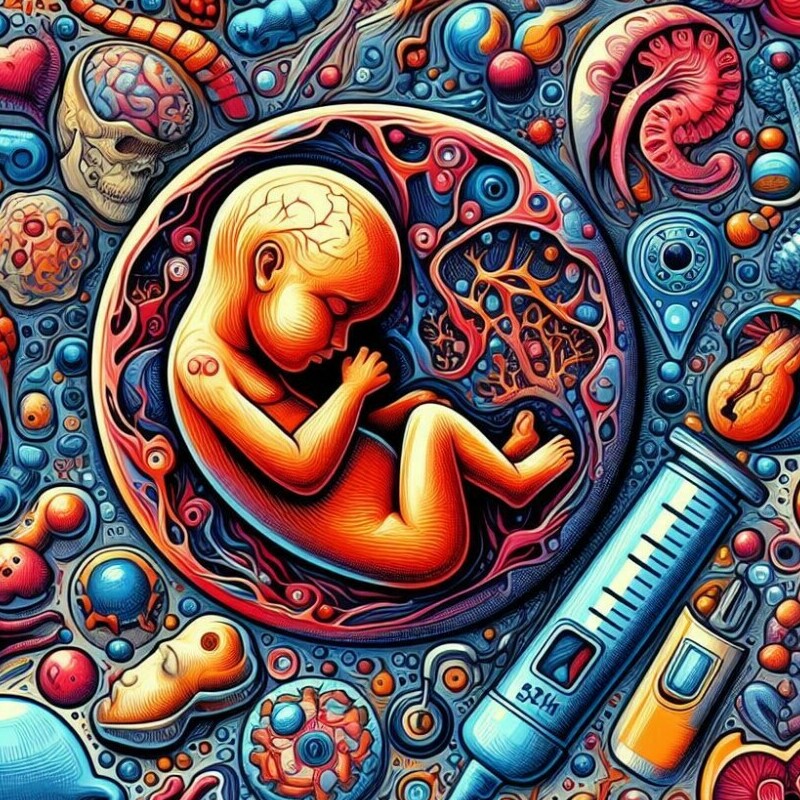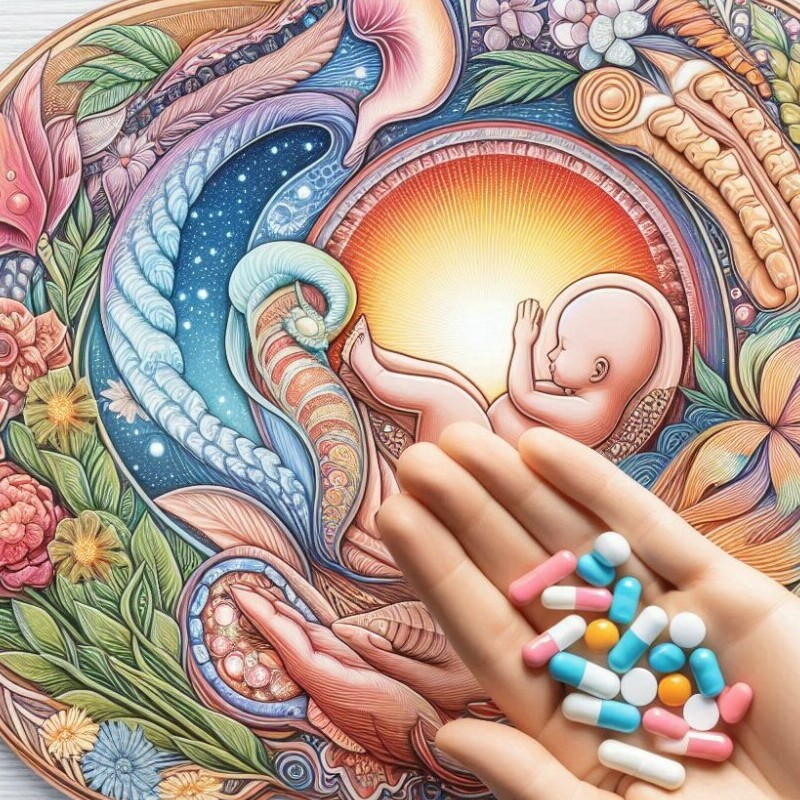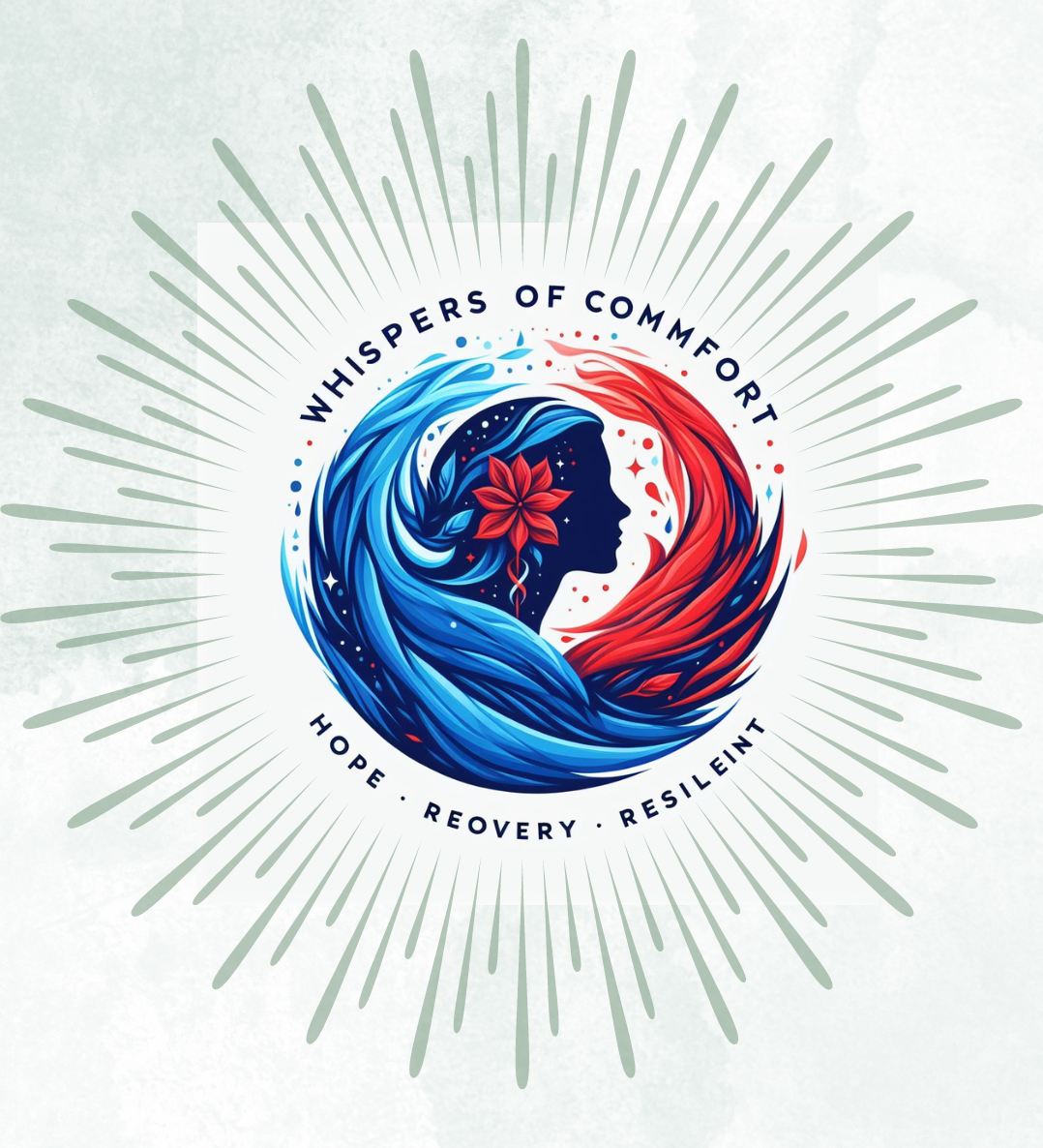
Infertility and miscarriage are deeply personal and often distressing experiences that affect many individuals and couples worldwide.
Despite significant advancements in medical science, these challenges continue to pose emotional and physical hurdles for those yearning to build their families.
I’m going to kick things off with a clear-cut introduction to two challenges that many face but aren’t always openly discussed: infertility and miscarriage. When we talk about infertility, we’re referring to the difficulty of conceiving after a year of regular, unprotected sex, or the inability to carry a pregnancy to live birth. Miscarriage, however, is the loss of a pregnancy within the first 20 weeks.
You might be surprised to find out about the prevalence of these experiences. Infertility affects around 10-15% of couples of reproductive age, and miscarriages occur in about 10-20% of recognized pregnancies. But remember, these statistics don’t capture the full scope, as many instances go unreported due to privacy concerns or early losses that are never medically recorded.
The why’s are varied and can be complex. For infertility, factors range from ovulation issues and sperm abnormalities to lifestyle factors and genetic concerns. Miscarriages are often attributed to chromosomal anomalies in the embryo, but they can also be caused by medical conditions in the mother, such as hormonal imbalances or autoimmune disorders.
In my opinion, knowing when to seek help is crucial. If you’ve been trying to conceive without success or have experienced multiple miscarriages, it’s time to talk to a healthcare provider. They can offer diagnostic tests and discuss possible treatment options. But beyond that, they can become part of your support network, which is vital for your emotional well-being.
This isn’t just about the physical aspects; it’s also about the emotional ones. The journey through infertility and miscarriage can be fraught with grief and a sense of loss. In the following section, we’ll delve into the emotional roller coaster that often accompanies miscarriage, and more importantly, how to cope with it.
The Emotional Journey: Coping with Miscarriage
If you’re grappling with the aftermath of a miscarriage, know this: your feelings are valid and important. Miscarriage can summon a whirlwind of emotions, from profound sadness to unwarranted guilt. It’s a personal, often isolating journey, but you aren’t walking it alone. Here, I’m going to walk you through not just the common emotional responses to miscarriage, but also how you can navigate these turbulent waters.
Self-care isn’t just a buzzword; it’s a crucial pillar in the aftermath of a loss. It’s about allowing yourself time to grieve, to heal. This looks different for everyone. Some may find solace in journaling or art, others in meditation or gentle exercise. Counseling or therapy can be immensely beneficial—often, just having a space to express your thoughts and feelings can facilitate healing.
Support groups, both in-person and online, can offer a sense of belonging and understanding that friends or family might not be equipped to provide. Sharing your story with those who have lived through similar experiences can be incredibly cathartic. You can always adjust your approach down the road—if group support isn’t for you, one-on-one sessions with a counselor or therapist might be more your speed.
Maintaining open communication with your partner is also key. Remember, they’re processing this loss too. Work through this together—talk about your feelings, listen to theirs, and give each other permission to grieve in your own ways. And if you’re struggling, professional help can guide both of you through this.
Navigating this heartache is challenging, but with the right support and coping strategies, you can move toward healing. Now, in the following section, we’re going to explore transitioning from coping to hoping—how to emotionally prepare for pregnancy following a miscarriage, and how to bolster your strength and resilience for the journey ahead.
PS: If you’re curious about WealthyAffiliate.com and want to join, I’ve got an affiliate link that gets you a free trial and connects you directly to me for personalized support within the community. Just DM me for the details!
Pregnancy After Miscarriage: A Path to New Beginnings

If you’re considering pregnancy after experiencing a miscarriage, know that you’re not alone. It’s a hopeful step that many choose to take, and while it comes with its own set of challenges, it’s also a chance for new beginnings.
Before embarking on this journey, it’s crucial to ensure you’re physically and emotionally ready. Consult your healthcare provider to discuss any health implications and understand what precautionary measures to take. They’ll likely run some tests to see if there were any underlying causes of the miscarriage that need addressing before you try again.
The prospect of pregnancy after loss can be daunting, and it’s natural to feel a mix of excitement and fear. Managing anxiety can involve counseling or joining a support group where you can share your concerns and hear from others who’ve been in the same situation.
Take comfort in knowing that many have walked this path and have gone on to have successful pregnancies. While every story is different, these narratives can provide a wellspring of hope and perspective. Ensure that you’re surrounded by a strong support system that uplifts and understands you during this time.
Navigating the complexity of emotions can be tough, but it’s important to focus on self-care and maintain a healthy lifestyle. Eating well, exercising, and finding relaxation techniques that work for you can greatly influence your physical and mental well-being.
Remember, your previous loss does not doom future attempts. Every new pregnancy carries its own hope. Trust in yourself and your body’s ability to carry a pregnancy to term, and maintain open communication with your healthcare team throughout your journey.
Make the choices that resonate with you, whether that means trying soon after your loss or waiting a bit longer. You’re the best judge of your readiness, and no matter when you decide, your feelings are valid, and your experiences matter.
Support Networks and Resources: Finding Help and Building Resilience
Navigating the challenges of infertility and coping with the pain of miscarriage is, without a doubt, an incredible hardship. But remember, you’re not alone in this journey. Across the globe, numerous organizations and communities exist solely to support individuals like you.
In my opinion, the true foundation of resilience in the face of fertility-related challenges lies in the power of support networks. It’s about more than just addressing the medical aspects; it’s about the whole person. Here’s where you can find solace, understanding, and practical assistance when you need it most.
Your local healthcare provider is a great starting point. They often have information on support groups, counseling services, and can refer you to specialists. National organizations, many of which host forums and offer educational materials, are also just a click away online.
I recommend reaching out to a support group whether it’s in-person or virtual. Sharing your story and hearing others can be incredibly therapeutic. It puts you in a space where your feelings are validated, and often, the shared advice is not just comforting but enlightening.
Professional counseling or therapy sessions might seem intimidating at first, but they are integral for many individuals and couples. They provide tailored coping strategies, offer a neutral space to express feelings, and help you process the emotional rollercoaster that infertility and miscarriage can be.
And let’s not overlook the value of integrative approaches. Activities like acupuncture, yoga, and nutritional counseling are becoming increasingly popular for their stress-reducing benefits and overall contribution to well-being during fertility treatments or after a miscarriage.
You can always adjust your approach down the road, but choosing something that resonates with you is crucial. Whether it’s seeking professional help, leaning on a community, or finding solace in holistic health practices, these steps can foster empowerment and aid in healing.
Don’t worry too much about having all the answers right now. The path to recovery and resilience involves learning, adapting, and gradually finding peace. So today, I’m here to remind you that it’s fundamentally okay to seek help, to mourn, and to dream of a future filled with hope.
Infertility and miscarriage are more than just medical conditions; they are life-altering experiences that touch the very core of human hopes and dreams.
By raising awareness and promoting empathy, we can help alleviate the burden carried by those struggling with infertility and miscarriage, guiding them towards healing and renewed hope for the future.
Kindly leave your comments and experiences below.
Are You a Wealthy Affiliate Yet? Affiliate Marketing Success.
Simplified. Turn YOUR Passion, Hobby or Interest into YOUR Success Story! Join Wealthy Affiliate today: https://www.
Related:
- Best Sleeping Positions To Alleviate Back Pain
- How To Improve Your Posture To Prevent Back Pain
- Trauma-Focused Therapy Adults
- Best Sleeping Positions To Alleviate Back Pain
**Here’s a little transparency: Our website contains affiliate links. We may receive a small commission if you click and make a purchase. Don’t worry, as there’s no extra cost to you. It’s a simple way to support our mission of bringing you quality content.
Follow me on social media!

Hey,
I recently found this incredible article on infertility and miscarriage that genuinely resonated with me.
As someone who has faced these challenges, I find the article’s insights and advice on seeking help and building a support network invaluable. The section on coping with miscarriage was incredibly comforting, addressing the emotional journey with sensitivity and depth.
The guidance on preparing for pregnancy after a miscarriage was also a wellspring of hope and practical advice. I’ve shared this article with friends and family, knowing it can offer support and understanding to many.
I highly recommend reading and sharing it.
Best,
Earl
Hi Earl,
I appreciate your insightful contributions to the article.
I’m glad you found some level of comfort in the article. The experience you shared and your insights on seeking help and coping with miscarriage sound valuable.
Likewise, your highlights of the guidance on preparing for pregnancy after a miscarriage are appreciated.
I thank you for your kind words and for sharing the article with friends and family.
Thank you.
All the best,
– Makinde
Hi!
Your blog post beautifully captures the complexity and emotional depth of infertility and miscarriage. It’s crucial to highlight not only the medical aspects but also the emotional journey involved.
I was pretty young at the time, but i know my mother had a miscarriage. We have had several friends who have miscarried, some more than once. Every time it is very devastating.
Your focus on support networks and coping strategies resonates strongly, offering hope and guidance to those facing these challenges. The suggestion to maintain open communication with partners and healthcare providers is particularly important for navigating such personal experiences.
A couple of friends who had miscarried used their grief and experience to start a support group for other women going through their grief. It has been very touching to see them reach out to families to help them navigate these waters.
Your post will be a help to many!
– Scott
Hi,
I appreciate your contributions to the article and for sharing your experiences.
It’s deeply moving to hear about what your mother went through and the support your family and friends provided through their own grief. It’s good that the support initiative they started is making a positive impact in the lives of others facing similar challenges.
Support networks and open communication are crucial for those facing these challenges.
I hope my post will continue to comfort and guide those in need.
Thank you for your kind words and support.
Regards,
– Makinde